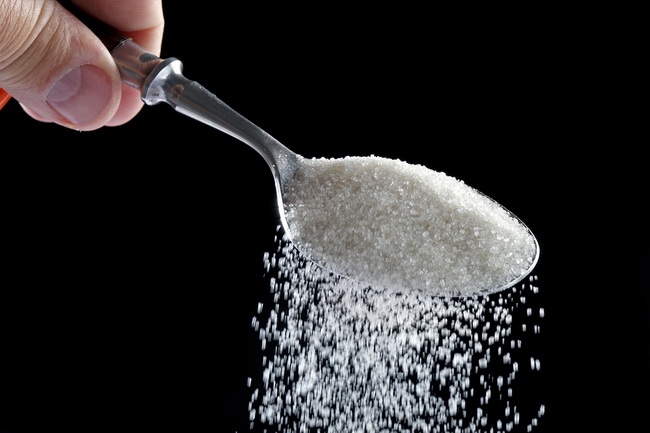- Make It Yourself Lavender Heart-Shaped Bath Bombs!
- 20 Things You Never Knew About “Down There”
- 12 Best Foods For Those Suffering From Arthritis Pain
- 12 Personal Hygiene Mistakes Almost Everyone Makes (Mom Never Told You About #4!)
- 15 Medicinal Plants And Herbs From The Cherokee People
- 12 Mind-Blowing Benefits Of Drinking Coconut Water During Pregnancy
- 12 Outstanding Winter Foods That Won’t Fatten You Up Like A Christmas Turkey
The Little Yellow Packet of Death
Dioxin is actually a waste product that comes from smelting, chlorine bleaching, and pesticide manufacturing. Dioxins are a well known carcinogen and were one of the main components in Agent Orange, used to defoliate the jungles of Vietnam during the war. It’s easily one of the most dangerous chemicals known to man and yet, the American public is being told it is safe.
Recent research involving animals suggests that there is a connection between the consumption of sucralose and an increased risk of leukemia. This piece of research alone should cause the FDA to reconsider the status of this chemical sweetener.
Another study in 2008 that involved animals showed that this dangerous artificial sweetener could kill as much as 50 percent of your gut bacteria. The bacteria that live in your digestive system are extremely important to your overall health. If you don’t have a balanced level of bacteria, you leave yourself open to unhealthy, dangerous micro-organisms that can cause you severe health problems. As if this isn’t bad enough, sucralose seems to kill off more of the “good” bacteria in your gut. In fact, one study showed that, even after a three month hiatus of sucralose, the overall numbers of gut bacteria remained compromised.
The FDA’s approval of this product was due to an early study which stated that sucralose would simply pass through the body. However, more recent studies show that it is metabolized in your digestive system. Therefore, the overall safety profile of this product is now unknown.
Unfortunately, many diabetics use this artificial sweetener in an attempt to control their blood sugar levels. Someone should tell them that, in both human and animal studies, sucralose affects the glycemic and insulin responses. In a nutshell, this means that using sucralose won’t help your blood sugar levels as you would imagine it would.
Sucralose was listed as safe by the FDA based on 110 animal and human studies. Sounds like a lot, correct? A closer look reveals that only 2 of those 110 studies were done on humans and one of them was only 4 days in length. 4 days! If you are a long term consumer of Splenda, then you are now the test subject of what happens when humans consume this product for long periods of time.
If you browse through the research it quickly becomes obvious that only about 10 percent of all studies done involve the safety of sucralose. Currently, there are only about 15 studies involving the safety of Splenda, and 13 of those were funded by the very company that produces Splenda. Does that sound like a conflict of interest to you?
You can’t trust a company to test its own products. Aspartame is a perfect example. 100 percent of manufacturer funded studies showed aspartame is completely safe. Independent studies showed that 92 percent of them had at least one health concern.
Continue to Page 3



































J J
Dec 10, 2014 at 5:07 pm
When I took my son to the orthodontist recently, his dentist was concerned about the affect that sugar may be having on his teeth, which are hard to clean because of the braces. I told him that I had concerns about artificial sweeteners, but he told me that the choice that we should make involved no sugar for the sake of my son’s teeth. My son doesn’t drink many beverages that have sugar or artificial sweeteners, but it appears that he should have none. It appears that there is no panacea, in spite of what the manufacturers say. I appreciate having this information.